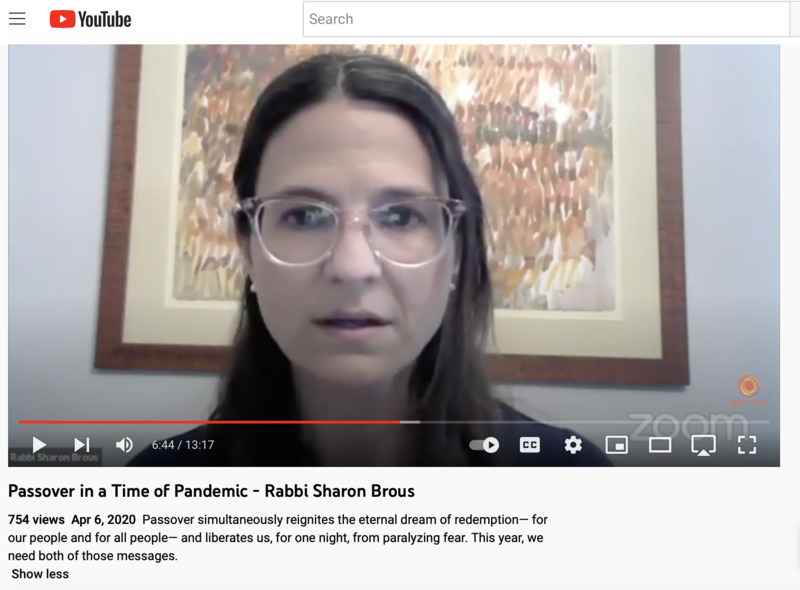Passover: From Distress to Hope
Emotions of fear, sadness, and loneliness ran rampant during the beginning of the COVID-19 pandemic, especially as families began to prepare for Passover, the most sacred holiday for Jewish communities. To combat the widespread anxiety, Rabbi Sharon Brous of IKAR, a spiritual, non-Orthodox Jewish community located in Los Angeles, uses Passover as a metaphor for the transition of distress to hope. Her discussion of personal fear allows her to be more relatable to her audience as she attempts to provide comfort to the IKAR congregation during this challenging period. In an April 2020 sermon, she states,
"Seder, in my mind, compels us to remember that we have seen terrible darkness before. That we've been imprisoned and we've been enslaved. We have been deported. We've been dehumanized. Our holy sites have been desecrated. We have been surrounded before by devastation and destruction, and we are called to remember for all time that our story does not end in darkness, because ours is a journey from darkness to light." (Brous)
She acknowledges that, although many people are experiencing great uncertainty about what lies ahead, it is not first time Jewish people have faced such troubles. She describes events such as slavery in Egypt and the Holocaust, putting the pandemic in a broader historical perspective for her congregation. She uses this theme of Passover throughout history to contextualize the pandemic, reminding her listeners that COVID-19 is not the first challenge to face this community. Nonetheless, Rabbi Brous does not deny the negative psychological effects of the pandemic, but describes her own fears and stress around mundane and potentially life-altering events. She thereby normalizes fears and similar emotions. She recounts,
"I'm afraid to buy groceries, and I’m afraid to ask someone else to get them for me. I’m afraid that I’ll hurt someone by not showing up by their side in a time of need, even though I know we’re not supposed to go out. I’m afraid that my parents will get sick and I wouldn’t be able to care for them.” (Brous).
By relating to her audience, she presents herself as a trustworthy source of advice. Following this, she once again speaks to the main point of Passover and says,
"What if the core idea of this holiday is that there is one night a year in which we hold the full awareness of the danger that's around us, and there's always danger around us. We're not afraid, symbolized by the opening of the door at the end of the Seder meal. What if we say we will not be defined tonight by fear?” (Brous)
Brous inspires her audience to embrace anxiety and use the holiday as a motivation to shift mindsets. She challenges her audience to push past the fear like other Jewish people have done throughout history, and instead focus on hope and optimism. Brous uses the occasion of the Seder to convince the people of IKAR that, while fear is prevalent and even normal during this time, a bright future lies ahead.
Source
Brous, Sharon. “Passover in a Time of Pandemic.” IKAR. IKAR, April 3, 2020. https://ikar.org/sermons/passover-in-a-time-of-pandemic-rabbi-sharon-brous/.
